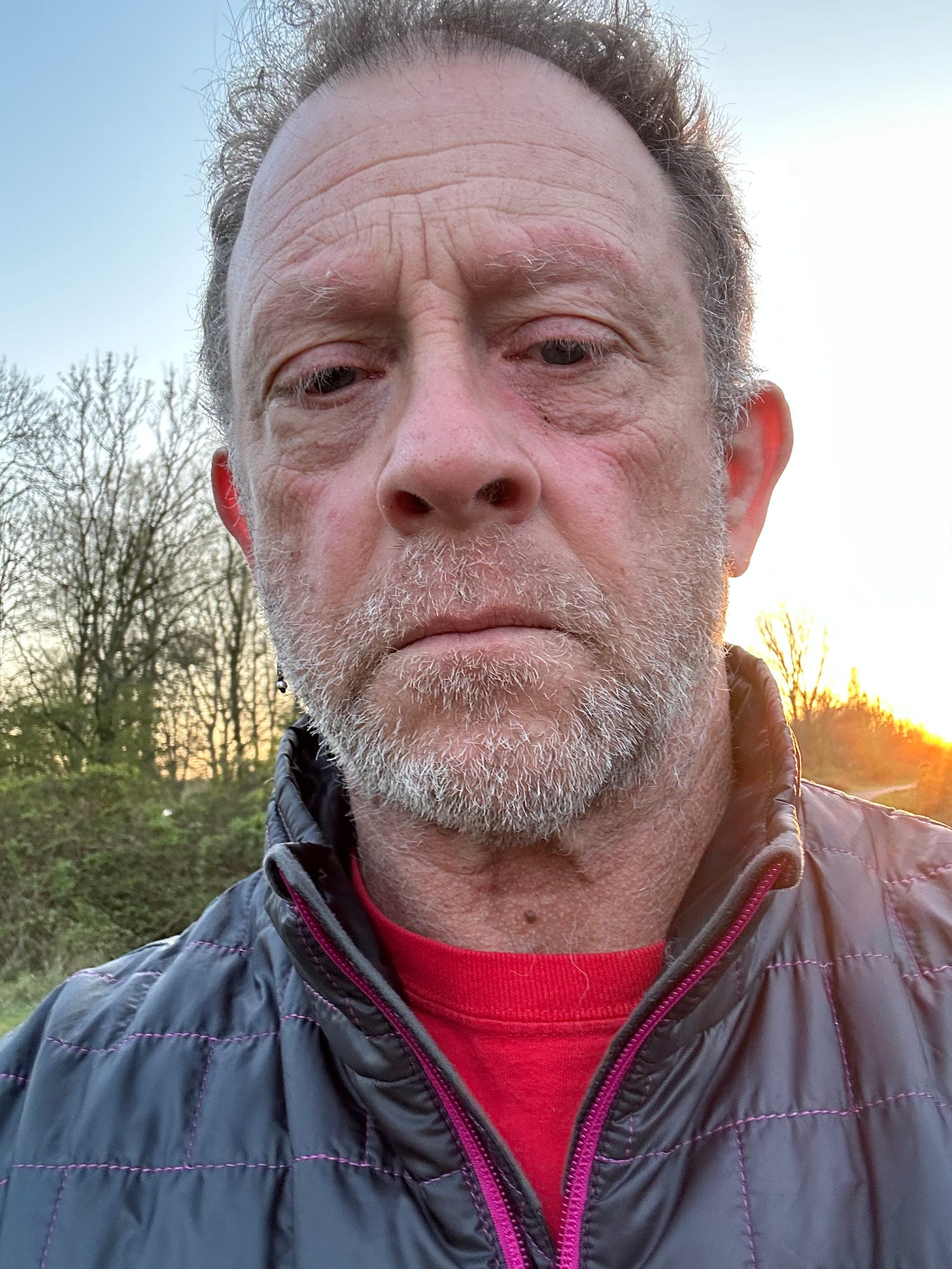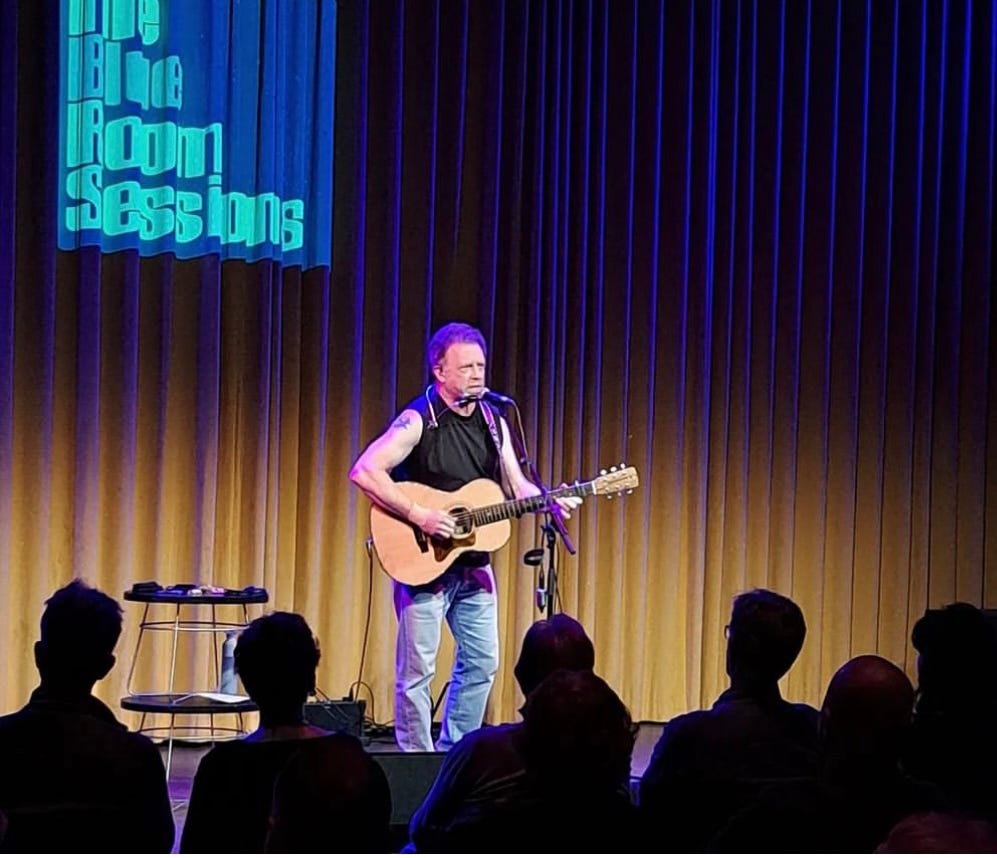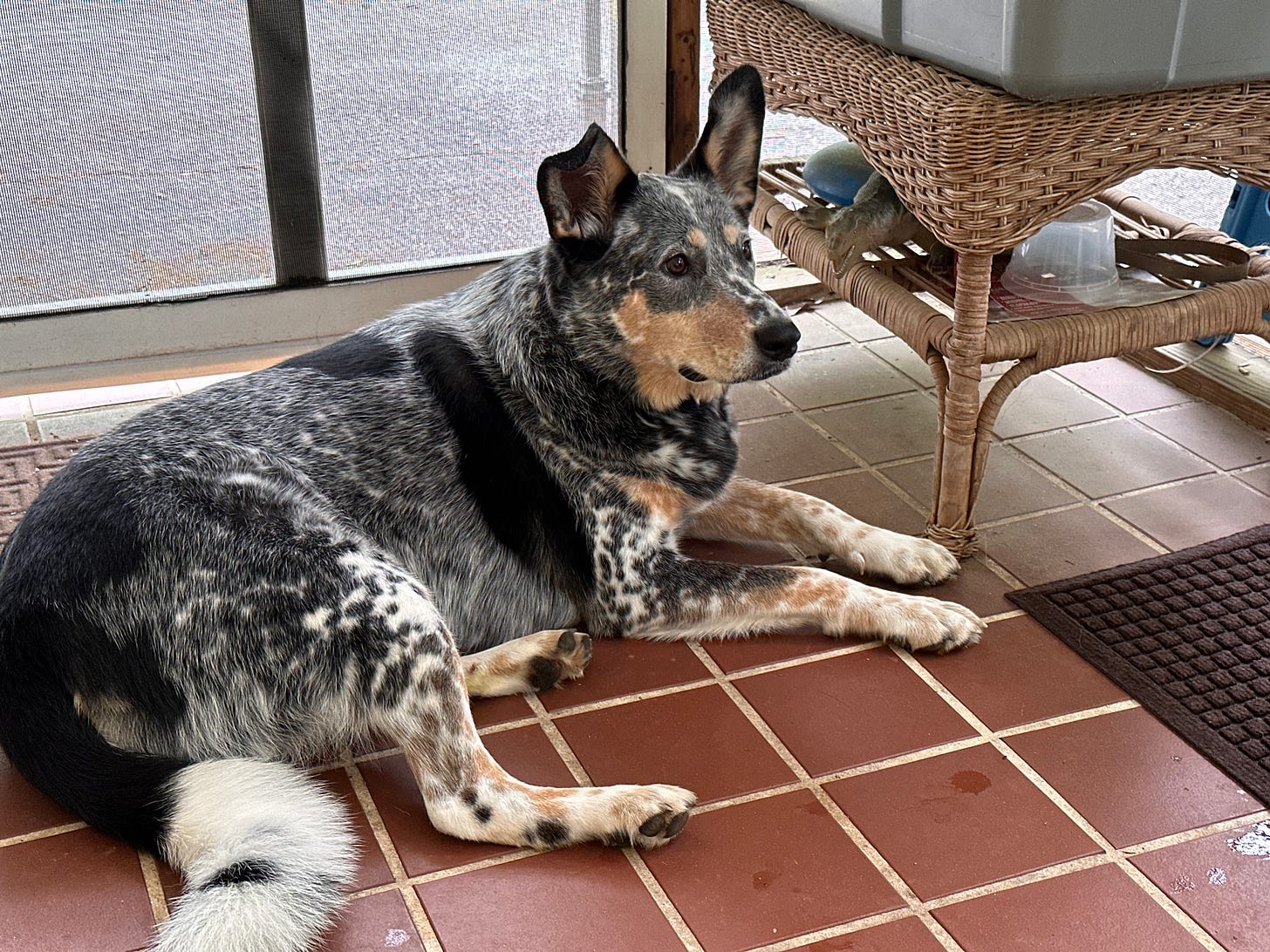*note to my readers- this was mostly written when I was still on the “Not Your Usual F*#cking American” tour at the end of April. When I returned I was worn out and sick of my own words.
But here we go again.
When I was playing basketball, they called the ball “the Rock.”
When I turned ten, I decided I wanted to play in the American Basketball Association, more commonly known as the ABA. They had a cool red, white and blue, tri-colored ball, Doctor J, the 3-point shot, and were flipping the bird to the basketball Establishment.
I really didn’t like the Establishment.
I liked some other things: Jazz, Gil-Scot Heron, anybody that Nixon was afraid of, Bert Campaneris of the Oakland A’s Baseball team, a girl, and the beach break at the Santa Cruz Pier.
And I loved the ABA.
Julius Erving, aka Doctor J, was the epitome of Jazz on hardwood. You can see him at this link.
10 greatest Julius Erving Moments
The ABA was made up of creative madmen, criminals, scoundrels, and a few schizophrenic players who had to be listed twice on the team roster.
I played a lot of basketball all by myself, using the neighbor’s hoop to imagine full games, where I represented all the great players but, in a clear indication of an already impossible ego, inserted myself in to the game as the next ABA superstar. I rarely missed a last second shot without being fouled and sinking the free throws to send the game into overtime, where I usually scored in double figures to ice the game.
I was headed for the hall of fame.
But At 5-10 I wasn’t going to be Doctor J, or Artis Gilmore, or Spencer Hawkins.
I would have to be like Earl Monroe, maybe the greatest guard to play the game.
Before people started calling Magic Johnson “Magic” that was Monroe’s nickname, until he was renamed “The Pearl” by white basketball announcers, who are fascinated, it seems, by rhyme.
The neighborhood and his opponents also called him “Black Jesus.”
Try to imagine Dick Vitale saying “Black Jesus” on the air.
You can read more about Earl Monroe at the following link.
Earl Monroe, Black Jesus, Magic, The Pearl
Earl didn‘t play in the ABA, but he played like he was in the ABA. So I was flexible.
I would be the next Earl Monroe, if Earl was playing in the ABA. I bought a tri-color ball. I played with abandon.
I played on school teams until I was 15 and probably would have kept playing if I’d lived somewhere other than “five passes before anybody shoots” Iowa.
My 8th grade coach got frustrated with me freelancing on offense and told me to stop playing like I was black.
My out-loud reaction to coach “old school” (we couldn’t win a game to save our lives playing 1955 era basketball) meant that I spent a lot of time on the bench after that practice. I was relegated to the B team where my friend Billy and I wreaked havoc against the other B teams.
The next year, the new, ironically named head coach, Mr. White, insisted that I play with more abandon.
We didn’t really have the players to be a great team under Mr. White but for the first time, I got to really play.
It was Iowa, so when I dribbled behind my back somebody would always yell “stop hotdogging!”
But in my mind, I was Earl, but in the ABA…
A few years later I would spend a couple of summers playing on Boston playgrounds where the competition was fierce and I found that I could hold my own.
I couldn’t really palm a basketball, but one day I followed a missed layup and half-dunked.
The next day I scored most of my team points on shots I was afraid to take when I played for coaches.
My brain was free, and my body followed.
Call me Little Magic? Maybe.
I even once played against, and guarded, a Boston Celtic. I scored the first basket. He scored all of the baskets after that and we lost 13-1.
When I was ten I couldn’t have seen that coming.
I couldn’t know that I’d never get my shot in the ABA.
The NBA realized pretty quickly that Black players, the future of American basketball, didn’t have much loyalty to a league that was managed by white men for white fans.
If the NBA didn’t change, the ABA was going to wipe them out .
History of the American Basketball Association
So they bought the four best ABA teams and killed the league.
Money gets what it wants, especially old, white money.
Add the ABA to the list of things invented, modified, or made better by black people that white people stole.
My dad was a hard core Celtics fan, except when they didn’t make the playoffs and then he was a hardcore Knicks fan.
And if the Celtics and the Knicks were both eliminated early, he was a hardcore fan of the underdog. Pops also had a lifelong hate for any team from Texas or Florida.
Pops was almost exclusively an NBA fan, and although he was entertained by my loyalty towards the outlier, I think he was happiest when the NBA brought the best players to the league. For my old man, it was a win/win.
I gave up my shot at being a serious athlete before I turned 21, but one of the nicest things Pops said to me when I was a 40 something adult, was that he knew I had the talent to have played pro ball in a few sports, but he didn’t think I’d be able to do the things that were necessary. He was sorry for not saying so when I was a kid.
Of course, he was right.
It’s such a long shot to be a professional athlete, that if you make a top-level professional team and never play in an actual game you’re one of the very few lucky souls.
And I don’t know how far I would have gone in any sport.
I hated coaches, schedules, and repetition. I even hated team spirit.
I was terrible at all the things that weren’t “fun.”
But never knowing is fine.
Just hearing praise from the guy who never stopped talking about the playoff game that the Laker’s Magic Johnson, stepping in for an injured Kareem Abdul Jabbar, played the center position, and dominated a game, was plenty. My old man knew what was what, and a big point guard playing at Center seemed impossible!
You can’t do everything, but Magic Johnson showed that me sometimes, you can really do something.
People who love men’s sports give Sports (capital “S”) a lot more credit than it deserves for molding character. One look at the collection of players with extensive histories of sexual assault and physical abuse towards women, the great tax cons perpetrated by the owners on everyday citizens, and organized crime’s hand shake agreement with legalized gambling set up around the major leagues should tell you that character doesn’t come from, or through, sports.
What did sports actually teach me?
It taught me how to make pain unimportant.
It didn’t teach me to ignore pain. That’s dangerous.
I learned how to move pain away from the center of my being.
I mean all pain: physical, emotional, and psychic.
In Cycling, racers use the acronym “HTFU,” which stands for “harden the fuck up.”
It’s a useful philosophy. If you think about it, most of a good life is about hardening the fuck up.
Hardening the fuck up lets you keep moving on, and moving on gets you to the good stuff.
I remember quite a few early mornings and late nights as a new parent when I would have been glad to just pack it in. Instead, I hardened the fuck up.
When Bell and Shore was touring as our only job and I had the kind of flu that screams out for bed rest I knew that not playing the shows meant not getting paid and not paying the rent. So I hardened the fuck up.
When my corporate job fell prey to a merger that brought in the kind of dipshits who make the idiots on Office Space look competent, I would have rather quit, but there were bills to pay and insurance to provide for a family of four. HTFU. I did.
A lesson I learned from a manager peer during my Telcom gig is even more useful.
When asked how he was doing he always said, “great.”
He admitted that wasn’t always “great.” But accurately pointed out that nobody offering a friendly greeting wants to hear what’s wrong with you.
I used that advice for 20 years in the corporate environment and it was the best advice I’ve ever received.
Not telling everyone your hurts and slights is a thing that actually helps you be successful. It’s just another way of telling yourself to HTFU.
So writing this Substack journal feels like breaking that rule.
Now the listener has to worry about me, which isn’t the listener’s work.
At shows I sometimes have a listener ask me how my wrists are doing, or if I’m still feeling anxious.
A few people have greeted me before shows with, “don’t worry, we won’t talk to you.”
I hesitated becoming part of the new podcast/instagram/memoir/blog society that updates people constantly on how and what the writer feels, or is doing, or overcoming, or struggling with.
Telling everybody about the little hurts and difficulties of every day life is the opposite of hardening the fuck up.
When you are, as I am, the luckiest man in the world, it feels particularly ungrateful and ridiculous not to just say, “I’m doing great!”
But…here we go again.
This tour was physically the most challenging tour I’ve done. 16 shows in 18 days, when you’re the only one on stage, is a lot like a playoff run in the NBA.
I knew I’d gradually be in more pain each show.
I was nervous from the start of the tour about the day I’d play two shows in two different cities with very little time between shows: a full two set show in Rotterdam in the afternoon and a, evening festival set at Roots of Heaven in the Patronaat in Haarlem.
That day came 9 shows in. It felt like the 6th game of the NBA Finals.
The first show of the day, at Walhala in Rotterdam, had been a terrific show: great sound, great room, great audience. We shut down, broke down, and hit the road in about 15 minutes so I could eat half a sandwich and a couple of baby carrots during the 90 minute drive to Haarlem.
I have a pretty set way of prepping for every show, so coming in hot like that can be rough for me. My expectations were low. My wrist felt like it was full of glass. My voice was tired from working every night. I had already been told that the sound crew was skeptical of my in-ear system.
The act before me played long.
The dressing room was full of another band, comprised of Locusts, that was eating everything and “hanging.”
I’ll say this, they were perfectly nice and polite locusts.
That’s kind of a test, right? Can I live the words I say to others: “show up 15 minutes early, don’t complain, do your job.”
I did. And here’s what happened next.
The sound crew was amazing, giving me a 10 minute sound check that resulted in the best in-ears mix I’ve ever had.
The Patronaat at Haarlem is one of the coolest theater complexes. I played there a few years before, opening the festival on the same stage, to a 1/2 filled room.
I thought it was cool then and that’s what I was expecting this time around, a great gig to a decent size audience. I sound checked to the usual empty room and went back to the now denuded dressing room, where all that remained after the band of Locusts was a t-shirt soaking in the sink.
I’m not a household name, so I fully expected a similar half-filled room.
I stood outside the stage door, tried out my wrist, which yelled curses at me in a couple of languages, took a couple of deep breaths, resulting in a coughing fit, and said to myself, “harden the fuck up,” and opened the door.
And walked out to this…
That show felt like dunking a basketball on a Boston playground court.
Sometimes, when you ask yourself how you feel, you should just say “great.”
In 20 years of corporate life I managed a lot of people. They were free to tell me anything.
The best didn’t.
They only told me the things that were actually life impacting.
That attitude of stoicism does seem to be the province of the laboring classes. Their disappointment in the day, their frustration with less than perfect moving parts, is rarely as readily expressed as the smallest discomforts suffered by the leisure class.
The leisure class never HTFU.
One thing I’ve learned by traveling a few parts of the globe outside the US is that people with more than enough money are the same everywhere. They are always “manifesting,” because it is inconceivable to them that what they want isn’t always within reach.
They are also the people who assume that anything they want or need is theirs for the taking. Not for the asking, the taking.
Here’s the scene.
In a hotel in Frankfort there is a small family, eating breakfast while their daughter rides her scooter her around the restaurant.
A few minutes ago she ran that scooter over somebody’s toes. The mom called out the German equivalent of “silly goose, come back here!”
That’s a certain kind of comfortable privilege that allows the world to rearrange itself to suit the needs of the individual.
That’s not HTFU.
I have my own privilege. I have a little bit of money.
I sometimes use my privilege to make life easier
I spend my money on hotel airports.
At the Amsterdam airport, Schipol, the Hilton is a covered walkway away from the gates.
The breakfast is terrific, except for the yogurt. They only had two flavors.
HTFU, Nathan
There’s a dog in the house.
I’d seen a picture, but dog’s pictures are often a bit of a lie. Just consider how many dogs are more beautiful then their pictures, due to their personalities and the look that they carry that says, “as dogs go, I’m pretty amazing.”
I think of how my friend Richard’s rescue, a lovely dog, once abandoned in the cruelest of fashions, greets you with an “I am so loved now, so, so loved” sweetness and joy and how no picture can adequately capture that look.
How many Corgis look like carefree happy animals yet drive their owners insane with barking, chewing, and aggression toward random humans and other dogs?
A rescue dog’s picture is like a profile photo on Match.com. You might get what was promised or you might be standing outside a county jail later that weekend with bail in your hand.
Most people have a favorite breed of dog, or in my crush’s case, a mostly breed of mixed, rescue dog.
The dogs that live in her head are Working dogs: Heelers, Cattle dogs, Aussie Shepherds, and any blend of Golden and Collie.
She is drawn to the smart, clever and loyal dogs. She is happiest with a big dog that likes to bump your legs when you come home, that walks with purpose, that chases balls and frisbees, loves strangers, but senses danger.
One of our late dogs, Molly, a herding dog, was so smart that my crush used to say, “if Molly had opposable thumbs, we’d be in trouble!”
And our Shepherd, Amy, was savvy in a “just returned from Vietnam, I don’t want to hurt anybody but if you mess with my family, you’re screwed” way.
And everybody already knows about my buddy, Scout. He was not a working dog, more of a true companion, a furry, floppy eared wing man, happy to be invited to do anything.
They filled up the house with sound, and motion, and when all three died in a relatively short period, it felt like a dozen animals had left us.
It’s no small thing after having animals in the house to live with the peculiar silence that descends when the last one leaves.
For almost a month I still turned at every metallic sound, expecting Scout, tags jangling, to round the corner.
And then, out of the blue, I accepted the silence. The loss was still there, as it always will be, but I was learning quickly how to love a little less, and how to fear loss and death a little less.
That will sound sad to you, but I have never lived a day without the certainty that when somebody leaves the room, they are likely to never come back.
There is a reason I feel this way, but it’s not the important part of my life, or me.
It was a little bit of a sad relief, to not have an animal to love, to worry about, to eventually lose.
But now, I’m going to to come home to a new dog in the house.
My heart knows what’s coming.
I can see, and feel, the unavoidable painful sweetness of loving something again.
Something that will leave too soon.
Witches and Men, again. This is a Golden Compass reference. You can read more about that at this link.
A Songwriter Says Farewell to the Dog Days
Witches and Men, Men and Dogs.
But the man who lives in the place he belongs knows what he’ll do when he gets home.
He will HTFU.
He will walk up to that dog, fall down on the ground, and let this new dog see every little bit of how he had loved his lost little buddy, and say, “I know how to love a dog.”
Then he’s going to tell his crush to give him the rock (in this case, a tennis ball) and he’s going to let it fly.
If it comes down and there’s a dog there, well, who knows what will happen next?
Magic, I think.
Love somebody,
Nathan
PS- 6/10/2023. It is, indeed, magic. Thank you, Leslie.
To Each of Us (a Shadow) featuring Patty Griffin- short film by Erica Scoggins












I think Dr. J is my favorite athlete of them all. He's why I became a Sixers fan, and why that Magic-at-center story is not one of my favorites.
Daisy is beautiful and very lucky.
Wonderful writing (how's that for keeping it simple?). You cover a lot of ground, all done well.